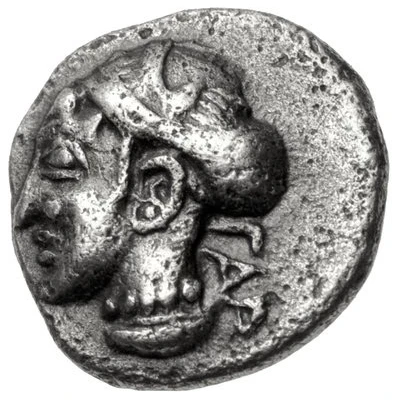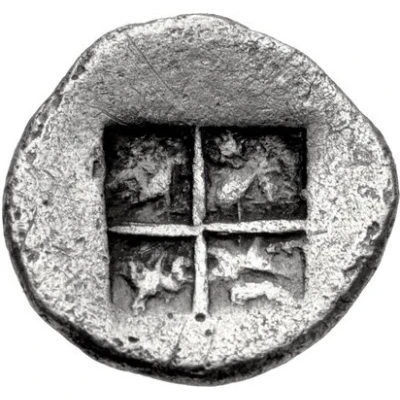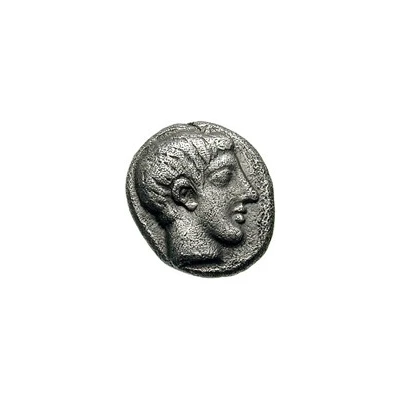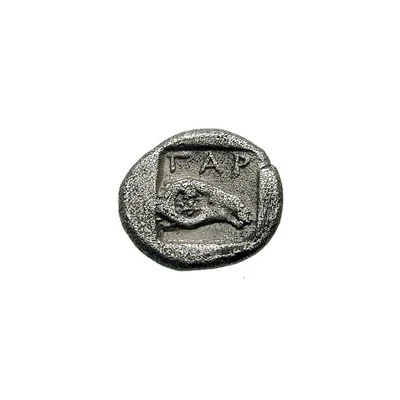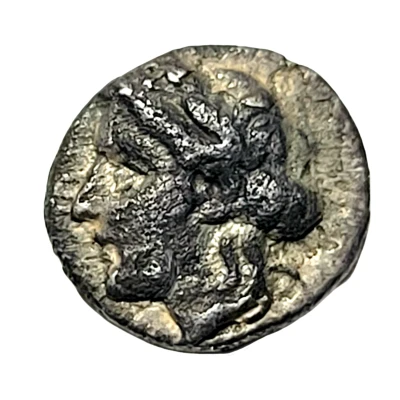
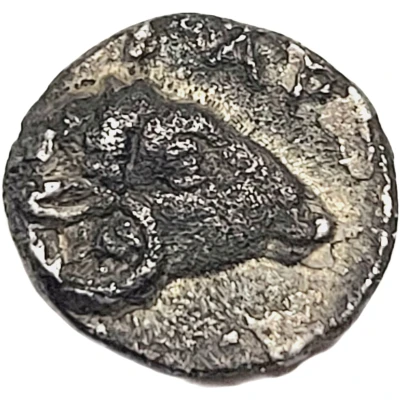

© mariogrrode
Tritartemorion 420 BC - 350 BC
| Silver | 0.5 g | 7.5 mm |
| Issuer | Gargara (Troad) |
|---|---|
| Type | Standard circulation coin |
| Years | 420 BC - 350 BC |
| Value | Tritartemorion (⅛) |
| Currency | Drachm |
| Composition | Silver |
| Weight | 0.5 g |
| Diameter | 7.5 mm |
| Shape | Round (irregular) |
| Technique | Hammered, Incuse |
| Orientation | Variable alignment ↺ |
| Demonetized | Yes |
| Updated | 2024-10-10 |
| Numista | N#374910 |
|---|---|
| Rarity index | 97% |
Reverse
Ram's head right
Script: Greek
Lettering: ΓΑΡ
Translation: Gargara
Interesting fact
The Tritartemorion coin was used in the ancient city of Gargara, which was located in the Troad region of Anatolia (modern-day Turkey). The coin features a unique design, with the head of a satyr on one side and a triskelion (a symbol of three interconnected legs) on the other. The triskelion was a common symbol in ancient Greece, representing the three corners of the world: Europe, Asia, and Africa. The use of this symbol on the Tritartemorion coin suggests that Gargara was a significant center of trade and commerce in the region.
